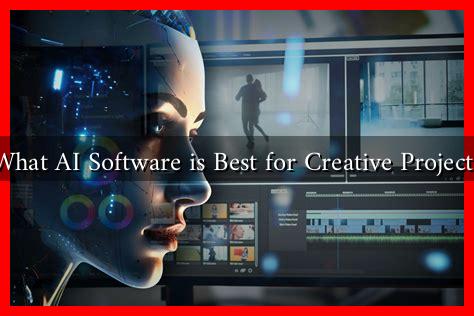-
Table of Contents
What AI Software is Best for Creative Projects?
Artificial Intelligence (AI) has revolutionized various industries, and the creative sector is no exception. From graphic design to music composition, AI tools are enhancing the creative process, making it more efficient and innovative. This article explores some of the best AI software available for creative projects, highlighting their features, benefits, and real-world applications.
The Rise of AI in Creative Fields
AI’s integration into creative fields has opened new avenues for artists, designers, and content creators. According to a report by McKinsey, 70% of companies are expected to adopt at least one type of AI technology by 2030, with creative industries being a significant focus. AI tools can assist in various tasks, including:
- Generating ideas and concepts
- Automating repetitive tasks
- Enhancing creativity through collaboration
- Personalizing content for audiences
Top AI Software for Creative Projects
Here are some of the leading AI software options that cater to different creative needs:
1. Adobe Sensei
Adobe Sensei is an AI and machine learning platform integrated into Adobe’s suite of creative tools, including Photoshop, Illustrator, and Premiere Pro. It enhances user experience by automating mundane tasks and providing intelligent features.
- Features: Content-aware fill, facial recognition, and auto-tagging.
- Benefits: Saves time, improves workflow, and enhances creativity.
For example, photographers can use Adobe Sensei to automatically tag images based on their content, making it easier to organize and find photos.
2. Canva
Canva is a user-friendly graphic design tool that incorporates AI to help users create stunning visuals quickly. Its AI features include design suggestions and automatic resizing for different platforms.
- Features: Magic Resize, Brand Kit, and AI-powered design suggestions.
- Benefits: Accessible for non-designers, quick turnaround, and professional-quality designs.
Canva’s AI capabilities allow users to create social media posts, presentations, and marketing materials with ease, making it a favorite among small businesses and freelancers.
3. Daz 3D
Daz 3D is a 3D creation tool that leverages AI to help artists create realistic characters and environments. It offers a vast library of assets and uses AI to enhance rendering quality.
- Features: AI-driven morphing, pose generation, and scene composition.
- Benefits: Streamlines the 3D modeling process and enhances realism.
Artists can use Daz 3D to create animations or illustrations for games and films, significantly reducing the time required for character design.
4. AIVA
AIVA (Artificial Intelligence Virtual Artist) is an AI music composition software that creates original music tracks based on user preferences. It is particularly useful for filmmakers, game developers, and content creators looking for unique soundtracks.
- Features: Genre selection, mood settings, and customizable compositions.
- Benefits: Cost-effective, quick music generation, and tailored soundtracks.
AIVA has been used in various projects, including video games and short films, showcasing its versatility and effectiveness in music production.
Case Studies: Success Stories with AI in Creative Projects
Several companies and individuals have successfully integrated AI into their creative processes:
- Netflix: Utilizes AI algorithms to analyze viewer preferences and recommend content, enhancing user engagement.
- Warner Music Group: Collaborated with AI to produce music tracks, demonstrating the potential of AI in the music industry.
- Artbreeder: A platform that allows users to create and modify images using AI, resulting in unique artwork that blends various styles.
Conclusion
AI software is transforming the landscape of creative projects, offering tools that enhance productivity, creativity, and collaboration. From Adobe Sensei’s intelligent features to AIVA’s music composition capabilities, these tools empower creators to push the boundaries of their work. As AI technology continues to evolve, it will undoubtedly play an increasingly vital role in the creative industries, enabling artists to focus on what they do best—creating.
For more information on AI in creative projects, you can explore resources like Forbes and McKinsey.


